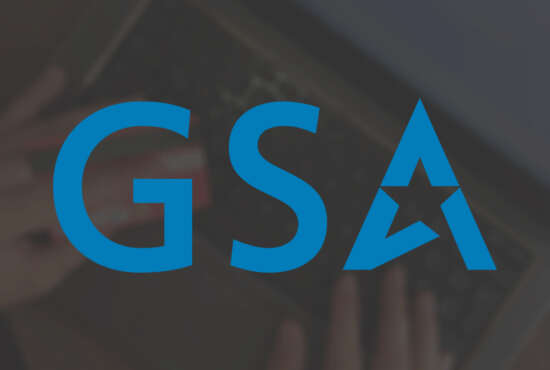House lawmakers continue to ask questions about GSA’s Login.gov troubles
In today's Federal Newscast, the General Services Administration’s Login.gov service continues to be in the crosshairs of House lawmakers.
- The House and Senate armed services committees have both finished their work on the 2024 defense authorization bill. There’s a lot of agreement on the big picture: both chambers of Congress agree military members will get a 5.2% pay raise next year. That’s in line with the Biden Administration’s budget proposal. So is the top-line funding level: $844 billion in the Department of Defense spending next year. Whether federal civilian employees will get a pay raise — and how much — is a lot less clear. Congress traditionally leaves that decision until the end of the year, and a large faction of House Republicans is advocating a plan that would require merit-based raises for civilians.(House, Senate committees approve 2024 NDAA, including 5.2% pay raise - Federal News Network)
- The Defense Department will make it easier to get help for military dependents with special needs. The exceptional family member program will now work the same way for all the service branches. Previously each service had their own way of administering the program. The new policy will ensure standardized identification and enrollment across services and ensure the same criteria is used in determining what services are offered. The guidelines are designed to make sure the family's special needs are considered during the duty assignment process.(New Defense Department policy standardizes exceptional family member program across the services - Department of Defense)
- The Department of Veterans Affairs is adding a new Agency Equity Team to provide world-class care and benefits to all Veterans. The Agency Equity Team, formally known as the I*DEA Council, will help VA improve outcomes for underserved Veterans, identify and eliminate disparities in VA health care and benefits, and eliminate barriers to recruit, hire and retain employees. VA is also creating a new Equity Assurance Office to coordinate with the I*DEA Council in solving issues related to VA health care and earned benefits to Veterans. The EAO office will be led by Laurine Carson and report to the Office of the Under Secretary for Benefits. (VA stands up Agency Equity Team to ensure that all Veterans receive the world-class care and benefits they deserve - Department of Veterans Affairs)
- The National Institute of Standards and Technology’s Public Working Group on Generative AI will work on addressing challenges and opportunities associated with the advancing technology. The group will be building off NIST’s AI Risk Management Framework to develop and provide guidelines for organizations planning on deploying AI technology. One of the group’s long-term goals is to explore how AI can be used to address issues such as climate change and health. The announcement of the public working group comes after a recent meeting between President Joe Biden and AI experts in San Francisco. (Biden-Harris administration announces new NIST public working group on AI - National Institute for Standards and Technology)
- A new report offers recommendations on how government agencies can maximize the benefits and minimize the harm of artificial intelligence. The National Artificial Intelligence Advisory Committee, submitted its first report to the President last week. The report offers steps to increase AI trustworthiness, advance research and development, and support the AI workforce. The committee also created a law enforcement subcommittee to address concerns with how AI is used in the criminal justice system.(NAIAC’s work supports the Biden-Harris administration’s ongoing efforts to advance a comprehensive approach to AI-related risks and opportunities - National Institute for Standards and Technology)
- The Department of Homeland Security has a new way to fund high priority technology projects. It’s called the NEF, or the non-recurring expenses fund. DHS got permission two years ago from Congress to establish the working capital fund using expiring, unobligated money. The NEF will have a 50-50 split between IT modernization projects and facilities improvements. On the IT side, DHS plans to use the NEF to upgrade cybersecurity defenses in legacy systems to invest in technologies that improve the employee experience at DHS, and to fund projects geared toward customer experience at the department’s many public-facing components. DHS plans to select the first NEF projects by the end of this year. (DHS working capital fund provides “additional avenue” for IT, facilities improvements - Federal News Network )
- The General Services Administration’s Login.gov service continues to be in the crosshairs of House lawmakers. Leaders on the Oversight and Accountability Committee said there are unanswered questions surrounding how GSA previously misled agencies about the platform’s compliance with security standards. In a June 21 letter to GSA Administrator Robin Carnahan, the lawmakers ask for more details on the agency’s internal review of Login.gov service, as well as “structural reforms” GSA is making to the program. (Letter to GSA on Login.gov - House Oversight and Accountability Committee )
Copyright © 2025 Federal News Network. All rights reserved. This website is not intended for users located within the European Economic Area.
Eric White
Eric White is news anchor and Federal Drive producer at Federal News Network.
Follow @FEDERALNEWSCAST





